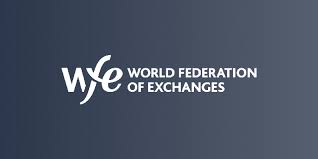The Imperative for a Global, Evidence-Based Reassessment of Derivatives Policy
The World Federation of Exchanges (WFE), the leading global advocate for exchanges and clearing houses, has issued a compelling call for a comprehensive and evidence-based reevaluation of public policy concerning derivatives. This call stems from the growing concern that current regulatory trends may inadvertently push derivatives trading away from transparent, regulated markets and towards opaque, off-exchange venues, thereby increasing systemic risk and potentially harming investors. The WFE emphasizes the critical role of derivatives in managing economic uncertainty and advocates for a regulatory framework that encourages their use within well-regulated, transparent environments.
Derivatives, financial instruments whose value is linked to an underlying asset (such as stocks, bonds, commodities, or currencies), are essential tools for managing risk. The derivatives market facilitates the trading of contracts like futures, options, and swaps, allowing businesses and investors to hedge against price fluctuations, manage exposures, and access sophisticated investment strategies. The WFE argues that restricting access to these instruments through excessive bureaucracy or regulatory burdens could have detrimental consequences, pushing participants towards less regulated trading venues and undermining the stability of the financial system.
The WFE underscores the importance of listed markets, also known as exchanges, as the bedrock of safe, reliable, and verifiable derivatives trading. Similar to their role in other financial markets, exchanges provide transparent price discovery mechanisms and ensure the integrity of transactions. Furthermore, clearing houses, integral components of exchange-traded derivatives markets, mitigate counterparty risk by acting as central counterparties to all trades, thereby reducing the risk of cascading defaults in the event of a market participant’s failure. The WFE argues that nurturing the role of exchanges and clearing houses is crucial for maintaining a healthy financial system.
The WFE advocates for a shift in public policy that moves away from measures that inadvertently incentivize trading in under-regulated environments. Instead, the organization proposes a framework that actively encourages trading on lit public markets, recognizing the numerous public benefits these venues offer. These benefits include transparency, price discovery, robust risk management mechanisms, and investor protection. By promoting trading on regulated exchanges, policymakers can ensure that derivatives markets function efficiently and contribute to overall financial stability.
Nandini Sukumar, CEO of the WFE, emphasizes the vital role of exchange-traded derivatives in risk management and cautions against policies that impede their growth. She warns that pushing derivatives trading into less regulated venues could lead to a resurgence of the risky practices that contributed to the 2008 financial crisis. Sukumar stresses the importance of learning from the past and advocates for bringing more transactions within the scope of margining and clearing, thereby enhancing market transparency and reducing systemic risk.
Richard Metcalfe, Head of Regulatory Affairs at the WFE, highlights the transparency and risk management benefits of exchange-traded derivatives, particularly the integral role of central clearing arrangements. He argues that the balance of regulatory incentives should favor listed derivatives over over-the-counter (OTC) derivatives, reflecting the superior risk management framework of exchange-traded markets. Furthermore, Metcalfe cautions against imposing excessive costs on central counterparties (CCPs), arguing that such measures could disincentivize risk management and create unintended consequences. He cites existing EU restrictions on contracts for difference (CFDs) as a positive example of regulations that promote high standards across all segments of the derivatives market. The WFE’s call for a global, evidence-based review of derivatives policy is a timely and important contribution to the ongoing debate about how to regulate these complex financial instruments. By emphasizing the benefits of transparent, regulated markets and advocating for policies that encourage their use, the WFE aims to foster a more stable and resilient financial system.


